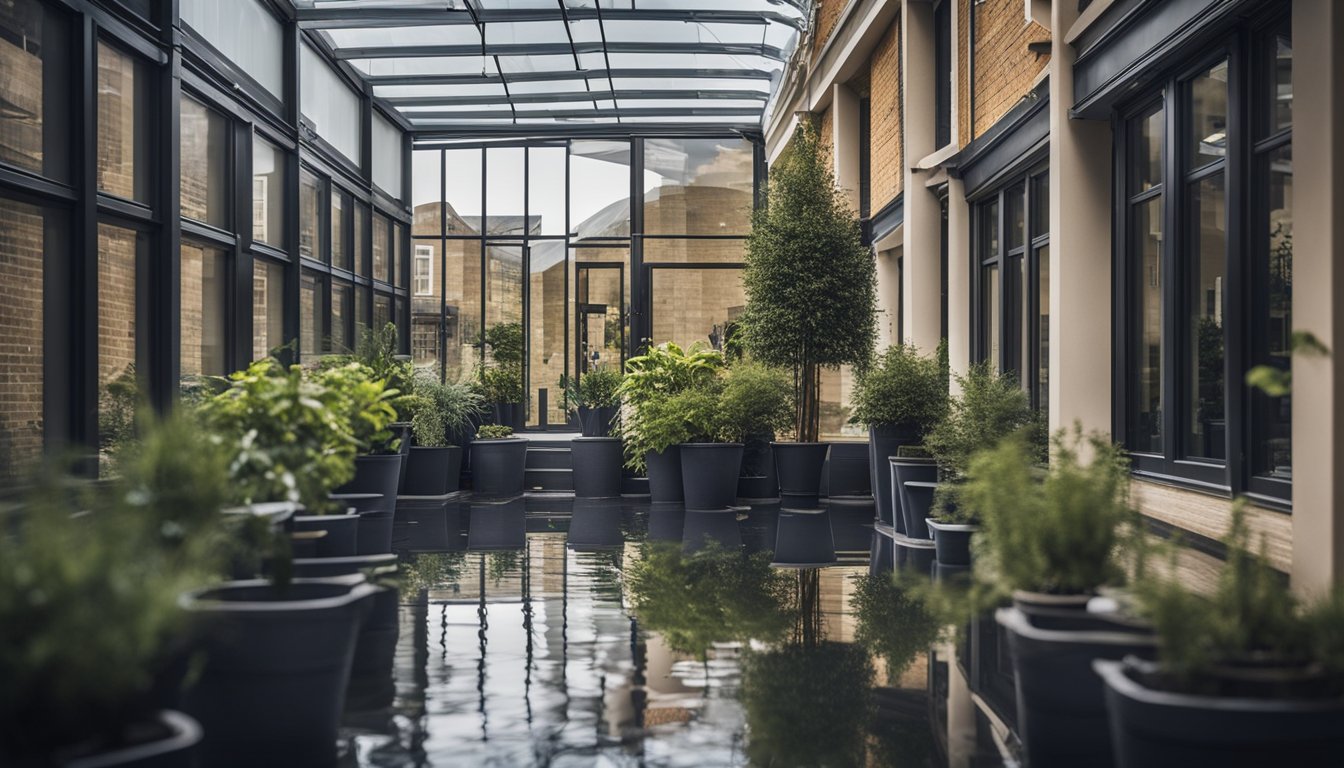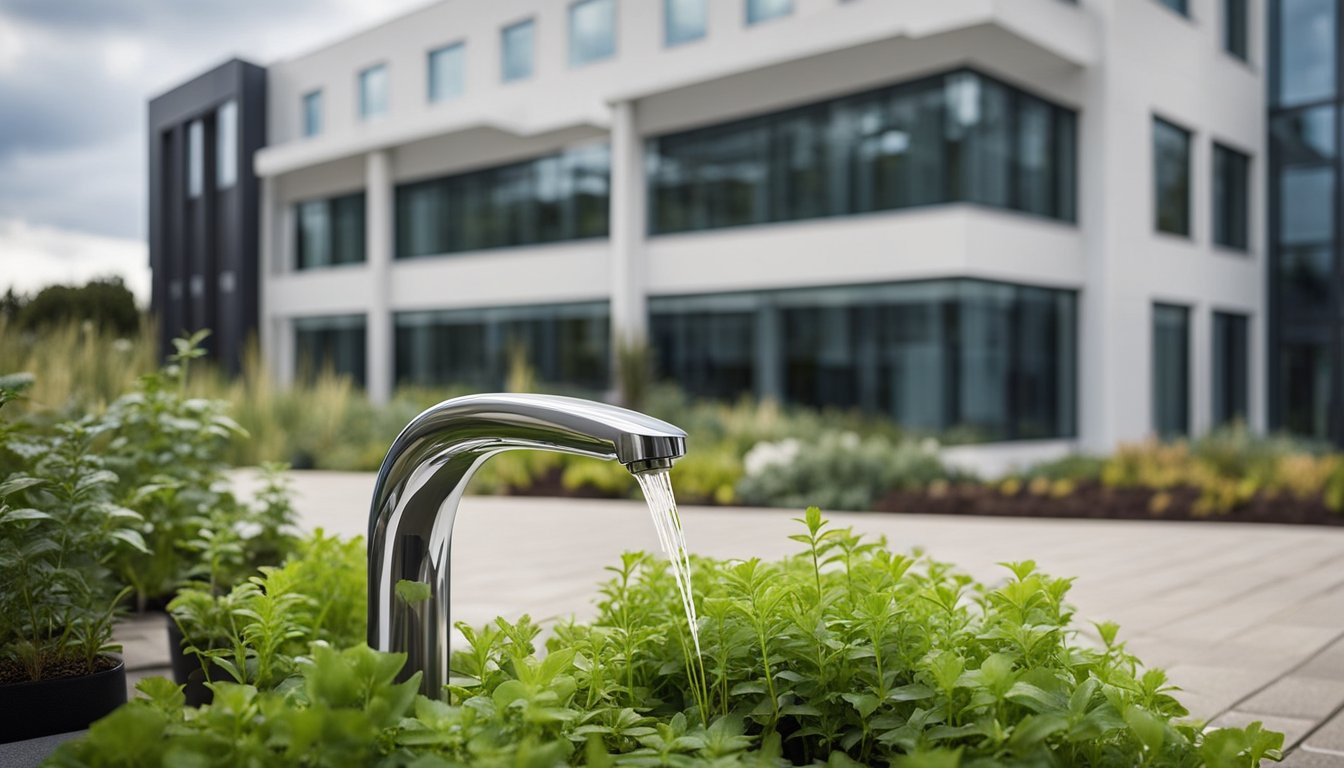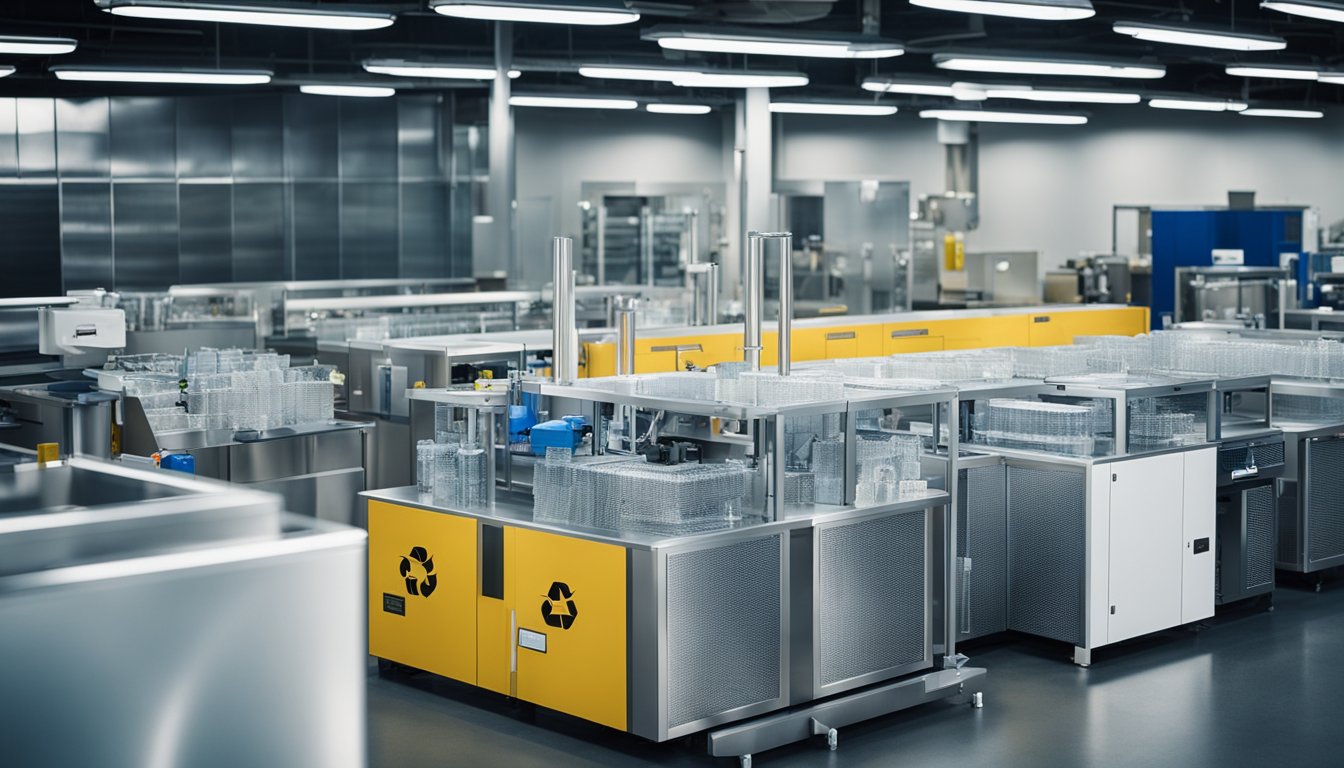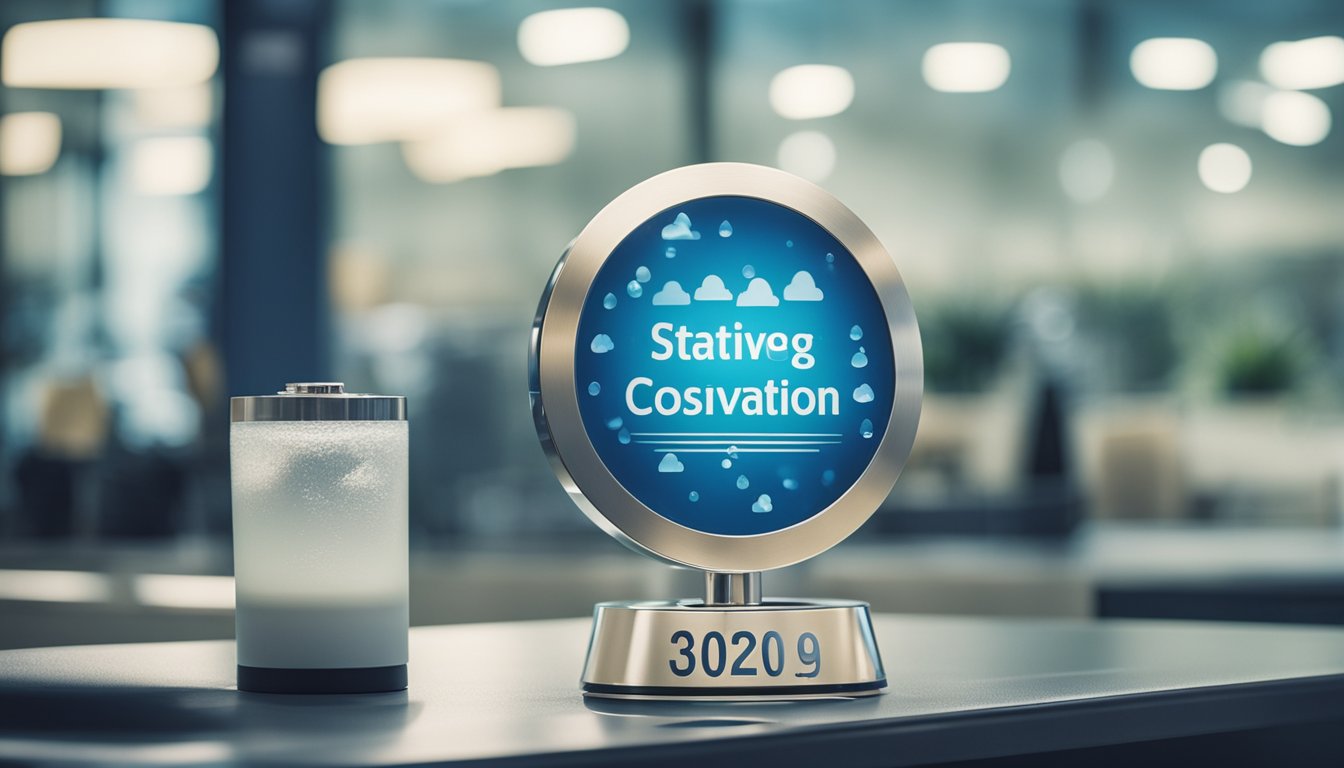Late updated: 20 Aug 2024 12:08
Written by: Amber Collins
Sustainable Water Conservation Tips For UK Businesses: Effective Strategies for a Greener Future
As UK businesses increasingly recognise the importance of sustainability, focusing on water conservation becomes a pivotal aspect of their environmental responsibility. Not only does this contribute positively to the environment, but it also offers significant cost savings. Implementing effective water conservation techniques can drastically reduce water usage and bills, creating a win-win scenario for both the business and the planet.

We must engage with suppliers and partners, encouraging them to adopt sustainable water practices. This collective effort can create a ripple effect, significantly impacting water conservation across entire supply chains. Adopting advanced water-saving technologies such as spray taps and dual-flush toilets can lead to substantial reductions in water waste, enhancing our commitment to a sustainable future.
In the quest for sustainable water usage, UK businesses should consider professional water auditing services. These experts can identify areas for improvement and recommend bespoke strategies that cater specifically to our operations. By leveraging these expert insights, we can make informed decisions that promote water efficiency and align with broader environmental goals.
Key Takeaways
- Effective water conservation can reduce both environmental impact and business costs.
- Collaborating with suppliers enhances sustainable practices across the supply chain.
- Professional audits provide tailored strategies for optimal water efficiency.
Adopting Water-Saving Technologies

Businesses can significantly reduce water usage and achieve cost savings by implementing advanced water-saving technologies. These initiatives, such as efficient equipment and sustainable plumbing solutions, play a crucial role in fostering water conservation efforts.
Efficient Equipment for Water Management
Integrating efficient equipment is vital for managing water use in businesses. Rainwater harvesting systems allow us to collect and use rainwater for non-potable purposes like irrigation and toilet flushing, reducing dependency on mains water. Greywater recycling systems also help by treating and reusing wastewater from sinks and showers.
We can also install water-saving technologies like low-flow toilets, dual-flush toilets, and waterless urinals, which significantly cut down on water use in restrooms. Efficient dishwashers and showers designed to minimise water consumption without compromising performance contribute to overall water conservation.
Incorporating Sustainable Plumbing Solutions
Adopting sustainable plumbing solutions ensures long-term water savings. Installing water-efficient fixtures like low-flow faucets and aerated showerheads reduces water wastage. Additionally, implementing leak detection systems can help identify and repair leaks promptly, preventing significant water loss.
Regular maintenance and timely repair of pipes and plumbing prevent drips and leaks that can lead to substantial water wastage. Upgrading old plumbing fixtures and using modern materials that prevent corrosion and leakage are also effective. Attention to efficient plumbing designs ensures optimal water flow and usage, contributing to our conservation objectives.
Strategic Water Conservation Practices

Effective water conservation practices can significantly enhance the sustainability and operational efficiency of UK businesses. By optimising landscaping practices and conducting water audits, we can achieve measurable reductions in water usage.
Enhancing Water Use in Landscaping
Landscaping practices play a crucial role in water conservation. By adopting water-smart landscaping, businesses can reduce their water use while maintaining aesthetic appeal.
Incorporating native plants into landscaping designs is a key strategy. Native plants typically require less water and are better suited to local climate conditions. Another effective method is installing drip irrigation systems which deliver water directly to the roots of plants, minimising wastage.
Optimising watering schedules is also essential. It is best to water plants early in the morning or late in the evening to reduce evaporation. Implementing mulching around plants helps retain soil moisture and further decreases water needs. Simple changes like these can lead to significant water savings.
Implementing a Water Audit and Reduction Strategies
Conducting a comprehensive water audit is the first step towards efficient water management. This involves assessing water usage patterns to identify areas where water can be saved.
Collecting and analysing water consumption data allows us to pinpoint inefficiencies. After the audit, we can make informed recommendations for reducing water usage. Examples include installing low-flow fixtures in bathrooms and kitchens, and replacing old appliances with water-efficient models.
Implementing sensor-based or time-controlled irrigation systems can also ensure optimal water use. Regular monitoring and maintenance of these systems will help maintain their efficiency. Adopting these strategies not only fosters environmental stewardship but also results in significant cost savings for businesses.
Frequently Asked Questions

We address common concerns regarding sustainable water conservation for businesses in the UK, including effective strategies, employee engagement, and innovative approaches.
What are effective methods for businesses to conserve water in the UK?
Effective methods include conducting regular water audits, installing low-flow fixtures, and implementing rainwater harvesting systems. These practices help reduce overall water consumption.
How can UK businesses contribute to sustainable water supplies?
UK businesses can contribute by using water-efficient technologies, recycling wastewater where possible, and setting water usage targets. Collaboration with local authorities boosts community efforts.
What water-saving measures can be implemented in company operations?
Implementing measures such as fixing leaks promptly, installing automated water dispensers, and educating staff about water-saving practices can significantly reduce water use. Monitoring usage helps identify areas for improvement.
In what ways can employees be encouraged to participate in water conservation?
Encouraging participation can be achieved through training programs, awareness campaigns, and offering incentives for water-saving suggestions. Creating a culture of sustainability involves everyone in the workplace.
Which water-saving devices are most beneficial for commercial use?
Beneficial devices include low-flow toilets, water-efficient dishwashers, and smart irrigation systems. These devices can lead to substantial water savings compared to traditional options.
What are innovative water conservation strategies for UK industries?
Innovative strategies include utilising greywater systems, adopting precision irrigation in agriculture, and investing in advanced water recycling technologies. Staying current with industry advancements promotes increased efficiency.
